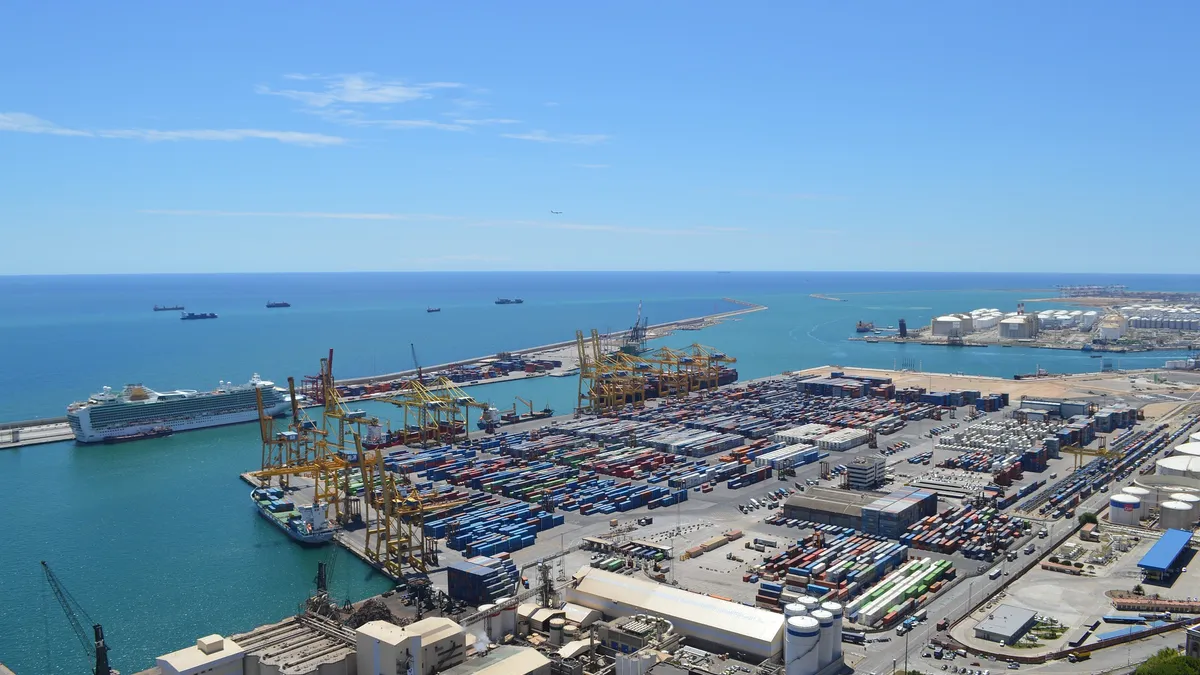Dive Brief:
- Dockworkers in Spain are planning more port strikes to protest the latest effort to align with European Union regulations, American Shipper reported Tuesday.
- The strikes will commence on May 24 and last through June 9, on Mondays, Wednesdays and Fridays at odd hours.
- This is the second attempt by the government to reform its rules requiring all dockworkers to be pat of a stevedores' union before being employed by a terminal. Such a reform, stevedores argue, would limit collective bargaining.
Dive Insight:
Shippers and receivers of all types can expect delays and disruptions if the current rash of port strikes in Valencia, Las Palmas, Barcelona and Algeciras, Spain continue. Supply chain managers should take special note of the possibility and make alternative arrangements for goods that pass through Spain as soon as possible.
A slowdown has already begun, Lloyd's List reports, claiming that workers are at least 30% less productive since news of the attempted reinstatement of reforms occurred on May 12. In March, during the previous period of slowdowns, Maersk Line allegedly lost $13.3 million dollars and was forced to divert over 70 ships to nearby ports outside of Spain.
While the workers' response to the potential changes can hardly be ignored, the Spanish government, as part of the European Union, is losing either way.
The country currently faces extensive fines for failing to comply with EU labor regulations, which would preclude the current stevedores' rule, but attempts to change the rule has consistently led to costly strikes and slowdowns. Spanish ports reportedly generate €24.5 million ($27.2 million) per day and employ roughly 145,000 workers.
A second attempt by the government to reform the rule despite the first attempt's failure indicates a clear determination to be more compliant with EU rules and disregard labor concerns. Since the first attempt in March, the ruling party has negotiated with previously opposed parties to secure a successful vote, El Pais reports.
Reintroducing the measure suggests the votes to pass the reform are there. However, the vote's success does not guarantee an end to supply chain slowdowns. On the contrary, feeling disresepcted by the government, stevedores have pledged to ramp up disruption to protest the rule.
The situation should be closely watched by all those within the supply chain, and efforts to reroute transportation networks or increase safety stock are well-advised.













